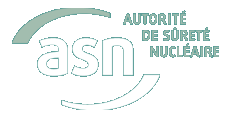| Chapter 02 |
- THE PRINCIPLES OF NUCLEAR SAFETY, RADIATION PROTECTION
AND PROTECTION OF THE ENVIRONMENT
- Fundamental principles
- Principle of the prime responsibility of licensees
- “Polluter-pays” principle
- Precautionary principle
- Public participation principle
- The principle of justification
- The principle of optimisation
- The principle of limitation
- The principle of prevention
- Some aspects of the safety approach
- Safety management
- The “Defence in Depth” concept
- Interposing of barriers
- Deterministic and probabilistic approaches
- Operating experience feedback
- THE STAKEHOLDERS
- Parliament
- The Government
- Ministers responsible for nuclear safety and radiation protection
- The Préfets
- ASN
- Role and duties
- Organisation
- Operation
- Consultative bodies
- High Committee for Transparency and Information on Nuclear Security
- The High Council for Public Health
- The High Council for Prevention of Technological Risks
- The Central Committee for Pressure Equipment
- Technical support organisations
- IRSN
- Advisory Committees of experts
- The ASN’s other technical support organisations
- Other stakeholders
- French National Authority for Health
- The French Health Product Safety Agency (AFSSAPS)
- The French Health Monitoring Institute (InVS)
- French National Cancer Institute
- OUTLOOK
|
|
2011, ASN's fifth full year as an independent administrative
authority, was marked by the nuclear accident at Fukushima.
Over and above the initial steps taken in 2011 (complementary
safety assessments, targeted inspections, work on harmonisation
of the international safety standards, etc.), detailed experience
feedback from this accident must be analysed in detail.
Detailed analysis of experience feedback from the Fukushima
accident will take at least ten years.
To be able to carry out this feedback analysis, while continuing to
perform its regular and demanding work on the regulation and
monitoring of French civil nuclear facilities, ASN has requested
additional resources. In its opinion 2011-AV-0135 of 9th
November 2011, ASN duly noted the budgetary effort made by
the Government at a time of economic crisis, but remains deeply
concerned by the inadequacy of these measures in the light of the
scale of the high-priority, long-term nuclear safety issues that
France must address following the accident at the Fukushima
nuclear power plant: this is for example the case of the addition
of only 22 staff seconded from personnel recruited by IRSN.
ASN stresses that fact that these additional staff must be part of
an increase in its permanent workforce rather than a temporary
secondment. It points out that in the current context, only
internal redeployments enable it to deal immediately with highpriority
urgent matters, inevitably leading to slower handling
of other matters that are less urgent in terms of safety.
Furthermore, in a context marked by the Fukushima accident,
the State must give a clear and unambiguous presentation of the
overall efforts being devoted to the public policy of nuclear safety
and radiation protection regulation in France. The current structure
of the budget devoted to this role fails to give Parliament and
the general public a full and clear view of the credits allocated to
it by the State. The complexity of the structure concerning ASN
has been underlined on various occasions, for example by
Parliament and the French Court of Audit (Cour des comptes).
ASN considers that thought must continue to be given to simplifying
the budget structure and, in the light of the current pressures
on public spending, must include a search for sources of funding
from outside the budget, such as that received by IRSN through
budget amendment act 2010-1658 of 29th December 2010.
|




